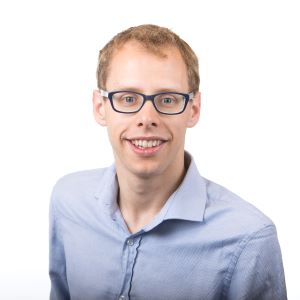Meet the trainer – Nico Claassens

We’d like to introduce you to Nico Claassens, one of the trainers of the course ‘Synthetic biology in action: beyond standard metabolism’. Nico himself was a participant of this long-standing course and has now joined as one of the trainers. We spoke to him about how his participation in 2015 affected his career and what has changed since then regarding the course set-up.
Can you tell us a bit about yourself and your research?
I have been an assistant professor for 2 years at Wageningen University in the Netherlands. My research is on microbial synthetic metabolism. Our work includes the engineering of bacteria for more sustainable production of chemicals and food. We engineer for example metabolic pathways to make bacteria grow on CO2 and one-carbon molecules that can be made from renewable electricity. We are designing pathways that are not (yet) found in nature and could potentially make conversion of CO2 and one-carbon molecules into products more efficient.
You were a participant of ‘Synthetic biology’ in 2015. It’s not often that a former participant later becomes a trainer for the same course! Can you tell us what kind of impact participating had on your career?
It had a great impact for sure, I was in the middle of my PhD then and looking for some new approaches in my challenging PhD project, in which the tuning of gene expression was a key challenge. Two of the speakers in the course presented very nice methods during the course and I tried both of them in the lab later, and both of those new methods ended up in my PhD thesis and in papers!
Are you still in contact with former course participants?
Yes for sure, both with fellow participants of which several are still active in the SynBio field as postdocs and PIs, I sometimes connect to them and ask for tips. And several of the organisers and speakers are also in my network, and with some I collaborate even now!
How has the course content developed over the years?
I think the main change is that it got a bit shorter, the first edition was two weeks full of intense practical and inspiring lectures, but two weeks was a bit too much. In 2017 the course got shortened to one week, a good timeframe, I think. And it’s also great to see how the content of the course both in practicals and talks continuously evolves with the rapidly evolving field of synthetic biology. Innovations discussed in 2015 are now common tools and the newest developments (including new technologies for cheap covid vaccine production for example!) are now discussed in the 2022 course. The synthetic biology field is clearly in action, as the name of the course also nicely reflects.
What can the new participants look forward to?
Apart from the practicals (which even though I am a practical trainer I would say is not even the most important part of the course), they can look forward to inspiring presentations by experienced researchers in the field and interactions with them and the fellow early career researchers in the course, all in a great informal small-scale atmosphere.
If you weren’t a scientist, what would you be?
Good question, since studying at university, my goal was to become a scientist, but I could also see myself in an research department of a cool biotech company working on sustainable production to make this world a bit of a better place. And when I was a kid I actually wanted to become a garbage collector, also contributing to a cleaner world, but I think my main motivation back then was to be allowed to jump on a riding truck.
For more upcoming events on synthetic biology take a look at our event listing.